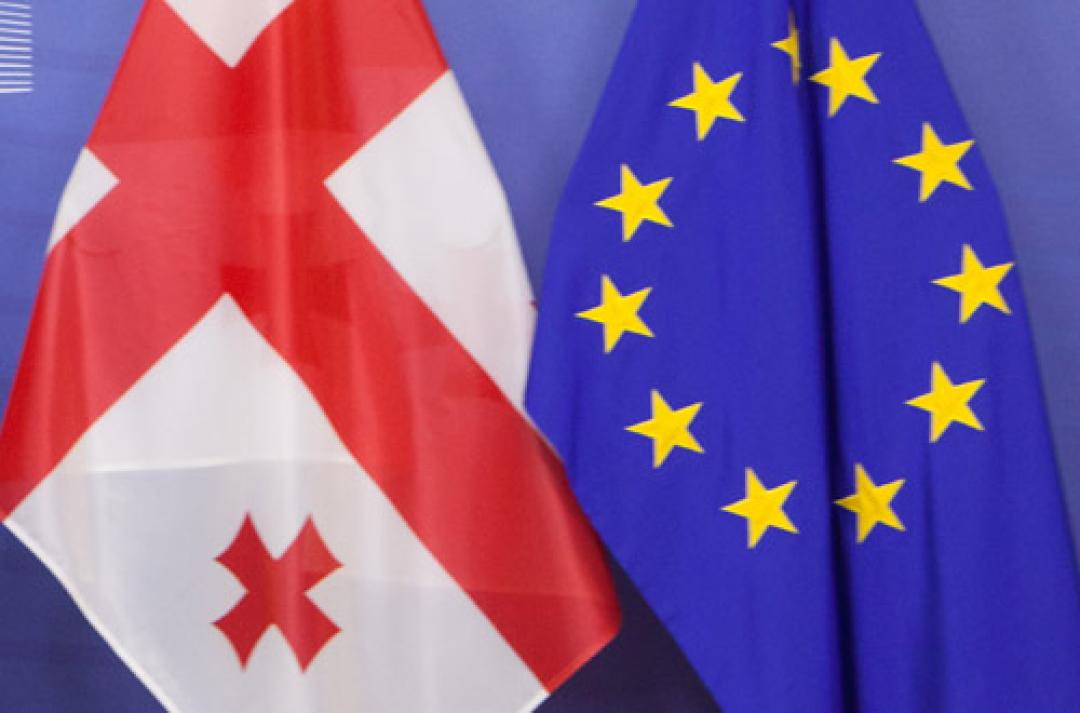
EU Report Criticizes Georgia’s Progress Amid Officials’ Claims of Advancement

On October 30, the European Commission released assessment reports on the alignment of Georgia, Ukraine, and Moldova with the EU acquis, examining their readiness for EU accession. The report on Georgia, however, indicated concerns about backsliding in certain areas, prompting a strong response from Georgian officials who defended the country’s progress.
The report, referencing findings by OSCE/ODIHR, highlighted several shortcomings in Georgia’s recent parliamentary elections, citing a tense, polarized environment and emphasizing the need for electoral reform. Additionally, it noted Georgia’s limited progress in implementing last year’s recommendations on fundamental human rights.
Georgia’s alignment with the EU’s common foreign and security policy remained low, assessed at 49%—a slight increase from 44% in the previous cycle. The report pointed to Georgia’s absence from EU crisis management missions under the EU’s common security and defense policy since June 2023, as well as a rise in direct flights to Russia, though it acknowledged Georgia’s cooperation in preventing sanctions circumvention. The EU reaffirmed its commitment to Georgia’s sovereignty and territorial integrity, referencing its ongoing support since 2008 through the EU Monitoring Mission and the efforts of the EU Special Representative for the South Caucasus.
EU Ambassador Paweł Herczyński called out “unprecedented” backsliding in Georgia’s progress on the Judiciary and Fundamental Rights chapter, stating that Georgia’s candidate status was granted with specific expectations, especially regarding rule of law and democratic reforms. He emphasized that these expectations remain unmet due to insufficient political commitment from Georgian authorities. “This year, Georgia has gone backward while other candidate countries have advanced,” Herczyński noted, urging Georgian leaders to closely examine the report and stressing that EU membership is a merit-based process “without shortcuts.”
On October 31, Georgian Parliament Speaker Shalva Papuashvili responded, asserting that Georgia is “progressing on the path of EU integration” and stating that the ruling party “evaluates the report positively.” According to Papuashvili, the European Commission found “good progress” in 12 chapters and “some progress” in 13 chapters, despite a challenging election year marked by “constant obstruction by the opposition and NGOs.” He noted that of the report’s 35 chapters, Georgia regressed only in the “Judiciary and Fundamental Rights” chapter, citing actions such as abolishing gender quotas, passing laws on foreign influence and family values, and “not holding an LGBTQ+ pride event.” Papuashvili asserted that in many fundamental areas, Georgia “leads among the countries” in EU integration, despite these setbacks.
Acknowledging longstanding disagreements with the EU over certain laws, Papuashvili noted that Georgian society has expressed its stance through election results and pledged to continue discussions with the EU while considering Georgian citizens’ views. He emphasized Georgia’s progress in the internal market and competitiveness, noting that the country ranks behind Ukraine only in three areas: foreign relations, green agenda, and resources.
The Speaker criticized “some EU representatives” for allegedly politicizing the integration process, warning that this risks turning EU integration into a political tool that could undermine the process itself and damage the EU’s credibility. Addressing allegations of election fraud, Papuashvili noted that EU representatives had previously agreed to consider the OSCE/ODIHR report in their assessment but claimed they were now disregarding it. He emphasized that the observation mission had highlighted only a few irregularities, such as President Salome Zourabichvili’s campaign involvement, which was characterized as “potentially acting outside her mandate” rather than as a misuse of administrative resources.
Papuashvili mentioned discussions with OSCE/ODIHR observers regarding alleged irregularities, such as the installation of precinct cameras and the involvement of coordinators and mayors in voter mobilization efforts. He asserted that these practices do not violate the Georgian Constitution and have been customary in Georgian elections. Regarding President Zourabichvili’s claims of widespread violations, he argued that she has “refused to provide any evidence,” adding that even the U.S. State Department’s press spokesperson emphasized the need for evidence to support her claims.
Papuashvili criticized opposition and NGOs for attributing minor ballot markings to election fraud, explaining that these markings were not visible due to envelopes used to conceal them, and that thinner paper was similarly used in past elections. “I once again call upon everyone to recognize the conclusion of the OSCE/ODIHR,” he stated, adding that the 1,120,000 voters who supported the Georgian Dream party’s policies “spoke loudly and clearly.” He concluded by urging all parties to “recognize democracy” and accept the election results.
See Also


Mirzoyan Meets US Deputy Assistant Secretary Joshua Huck

Azerbaijani President Holds Talks with UAE and German Business Delegations on Economic Cooperation

Grigoryan Confirms Armenia’s Readiness to Dissolve OSCE Minsk Group Upon Peace Treaty Signing

Azerbaijani Official Warns of Ecological Risks to Caspian Sea, Similar to Lake Urmia and Aral Sea

